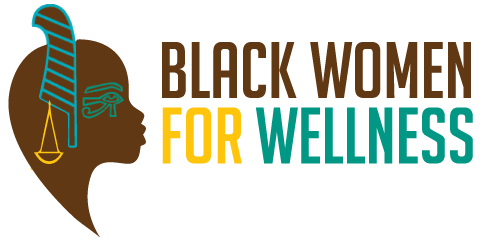Medical Abuse of Black Women in the United States: Organizing Solutions
Summary
In a healthcare system that prides itself on providing care for all, Black women often find themselves at the intersection of racism and medical neglect. Time and time again, Black women are overlooked and mistreated in the healthcare system. In this blog, I will argue that the healthcare field has consistently failed to provide adequate healthcare to Black women.

Author: DeMarria Williams
Date: 13 February 2025
In a healthcare system that prides itself on providing care for all, Black women often find themselves at the intersection of racism and medical neglect. Time and time again, Black women are overlooked and mistreated in the healthcare system. In this blog, I will argue that the healthcare field has consistently failed to provide adequate healthcare to Black women.
I say this because it has been proven through history and analytics of the disparities of Black women’s health outcomes, especially maternity-wise. I will prove this by discussing living areas as a pregnancy-associated mortality factor, the historical occurrence of medical abuse in the Black community, and evidence of racial bias in the healthcare system. While each of these points is an accurate reality for Black women in healthcare, it is not a good representation of what the healthcare system should be for its patients.
While exploring the complexities of pregnancy-associated mortality factors, inaccessible healthcare due to location often came up. A study focusing on pregnancy-associated mortality in Louisiana states, “…women living in parishes that lack access to maternal care experience a 91% increase in risk of death during pregnancy and up to 1 year postpartum…” (Wallace et al.).
In other words, the overall lack of available healthcare in certain areas creates high chances of fatality among pregnant women. While this statistic does logically make sense, it introduces cause to ask why is it that certain areas lack access to maternal care at all. There may be more than one answer to that question however the historical foundations of value for women, specifically Black women, is an underlying factor in this conversation.
The failure of the healthcare field to adequately provide for Black women has been an occurrence for much longer than many people are aware of. During the 19th century, Black women were unwillingly used for medical advancement, which demonstrated the lack of respect and humanistic value medical physicians had for Black women. According to Roberts (175, 176), “Marion Sims, for example, developed gynecological surgery in the 19th century by performing countless operations, without anesthesia, on female slaves purchased expressly for his experiments.”
Most people would think that as physicians, healthcare providers would be more inclined to ethically treat their patients, and while some have/currently do, it is worth acknowledging that much of the mistreatment that Black women endure now has stemmed from a long history of even harsher medical abuse. Overall, the historical presence of medical abuse towards Black women is a notably significant factor in understanding the current state of treatment that Black women receive in the healthcare field.
Another factor of the healthcare field’s failure to provide adequate treatment to Black women is the emphasis on racial bias that physicians operate under. One example is the reporting of women who use drugs while pregnant. Roberts (175) also states, “Despite similar rates of substance abuse, however, black women were 10 times more likely than whites to be reported to government authorities. Both public health facilities and private doctors were more inclined to turn in black women than white women for using drugs while pregnant.”
By no means is this intended to be an attempt to excuse drug use while pregnant, but rather it is an opportunity to showcase the inconsistency of consequences given based on race. This statistic not only shows the biases that the healthcare system imposes upon Black women but also highlights the lack of support that Black women receive when dealing with issues such as substance abuse. The biases used in health facilities when treating patients should not be dependent upon their racial makeup, yet that seems to be one of the unfortunate and realistic expectations of physicians nowadays.
Moving on, another goal of this blog post is to bring forth a call to action that serves as a potential solution to the issue at hand. By collaborating with organizations, such as Black Women for Wellness, Black women’s voices can be amplified in attacking their ill-natured treatment within the healthcare system. Black Women for Wellness is an organization that prides itself on intentionally educating society on the “racism, health, and well-being of Black mothers and infants” (Marchi and Rinki).
By donating to their cause, subscribing to their newsletter, and participating in their various programs, you can be a part of supporting Black women’s health and maternal livelihood. So much can be done, and it starts with the organizations that have dedicated time, research, and effort to bettering Black women’s position in these systems.
In conclusion, the healthcare field’s consistent failure to prioritize the health of Black women has grown so thick over time. Racial bias, inaccessible maternal care, and unethical methods of medical achievement have been just a few ways that show the reality of Black women’s experiences in the medical world. To fix this issue, much will need to be done but the small steps forward are what make way for the big movements to take place.
References
Marchi, Kristen, and Christine Rinki. “Centering Black Mothers in California: Insights into Racism, Health, and Well-Being for Black Women and Infants.” Black Women for Wellness, California Department of Public Health, 2023, bwwla.org/portfolio/centering-black-mothers-report/. Accessed 14 Mar. 2025.
Roberts, Dorothy E. Killing the Black Body: Race, Reproduction, and the Meaning of Liberty. Vintage Books, 1997, pp. 175–76.
Wallace, Maeve, et al. “Maternity Care Deserts and Pregnancy-Associated Mortality in Louisiana.” Women’s Health Issues, vol. 31, no. 2, Oct. 2020, pp. 122–29, https://doi.org/10.1016/j.whi.2020.09.004. National Library of Medicine. Accessed 14 Mar. 2025.
About the Author
DeMarria Williams is a junior Psychology scholar attending Xavier University of Louisiana. She is immensely interested in counseling psychology and behavioral patterns. These interests stem from numerous interactions during her childhood and continue to serve as driving forces in her educational and professional aspirations.
Her passion is to build a strong and impactful career in counseling psychology and eventually venture into private practice. She wants to target the mental health and day-to-day realities of college students, positively impacting the way that they show up in the world.
DeMarria has always enjoyed helping others help themselves and believes her purpose in this world is to do that through having meaningful conversations with people and being an advocate for showing up authentically in the world.
Contact: www.linkedin.com/in/demarria-williams-7537ab26a & demarriawilliams4@gmail.com




